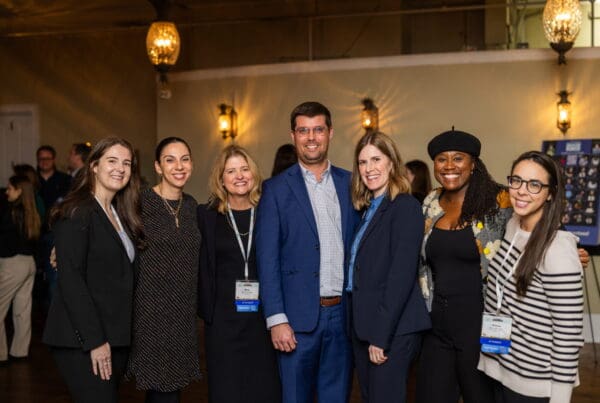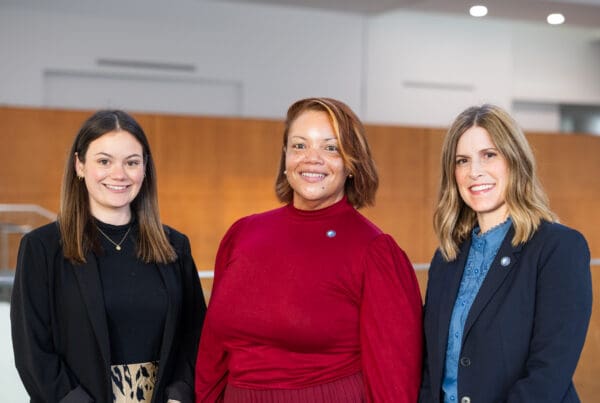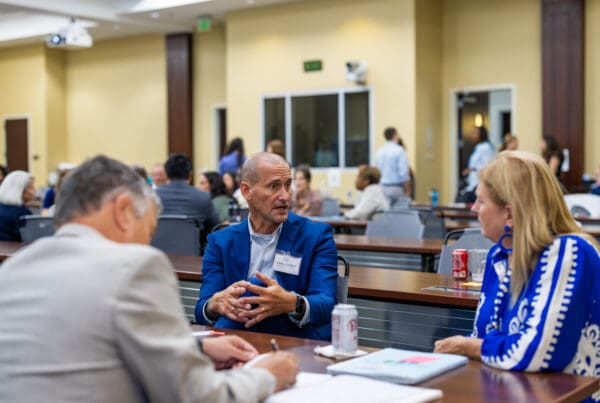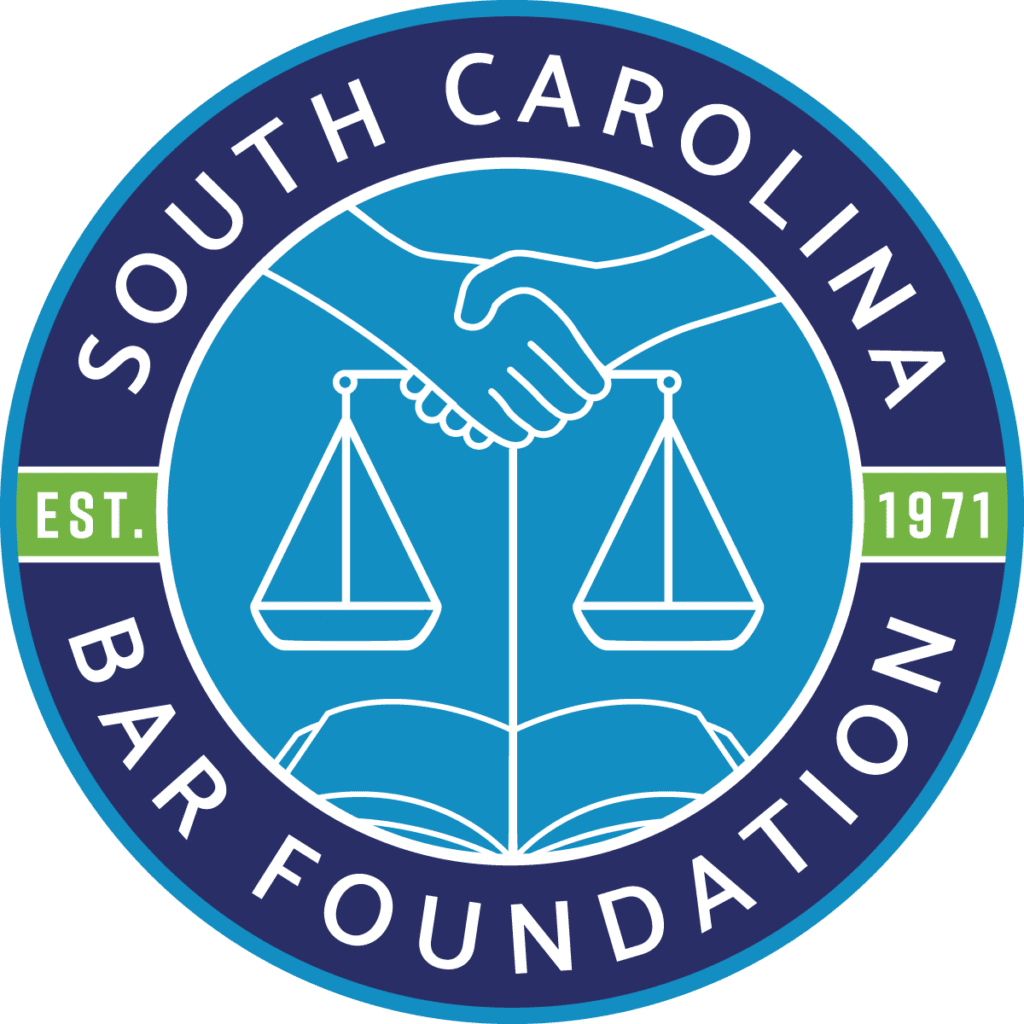In 2021, the South Carolina Access to Justice Commission launched a comprehensive assessment of the civil legal needs landscape in South Carolina—the first study of its kind.
Few would be surprised to learn that access issues exist in our state. However, this effort aimed to uncover details that would make addressing those needs more effective and practical. The study set out to understand the specific legal needs of low- and moderate-income residents, identify the resources available to meet those needs, and explore ways to better align resources with demand.
Recently, Olivia Jones, Executive Director of the SC Bar Foundation, discussed the study with Hannah Honeycutt, Executive Director of the Commission.
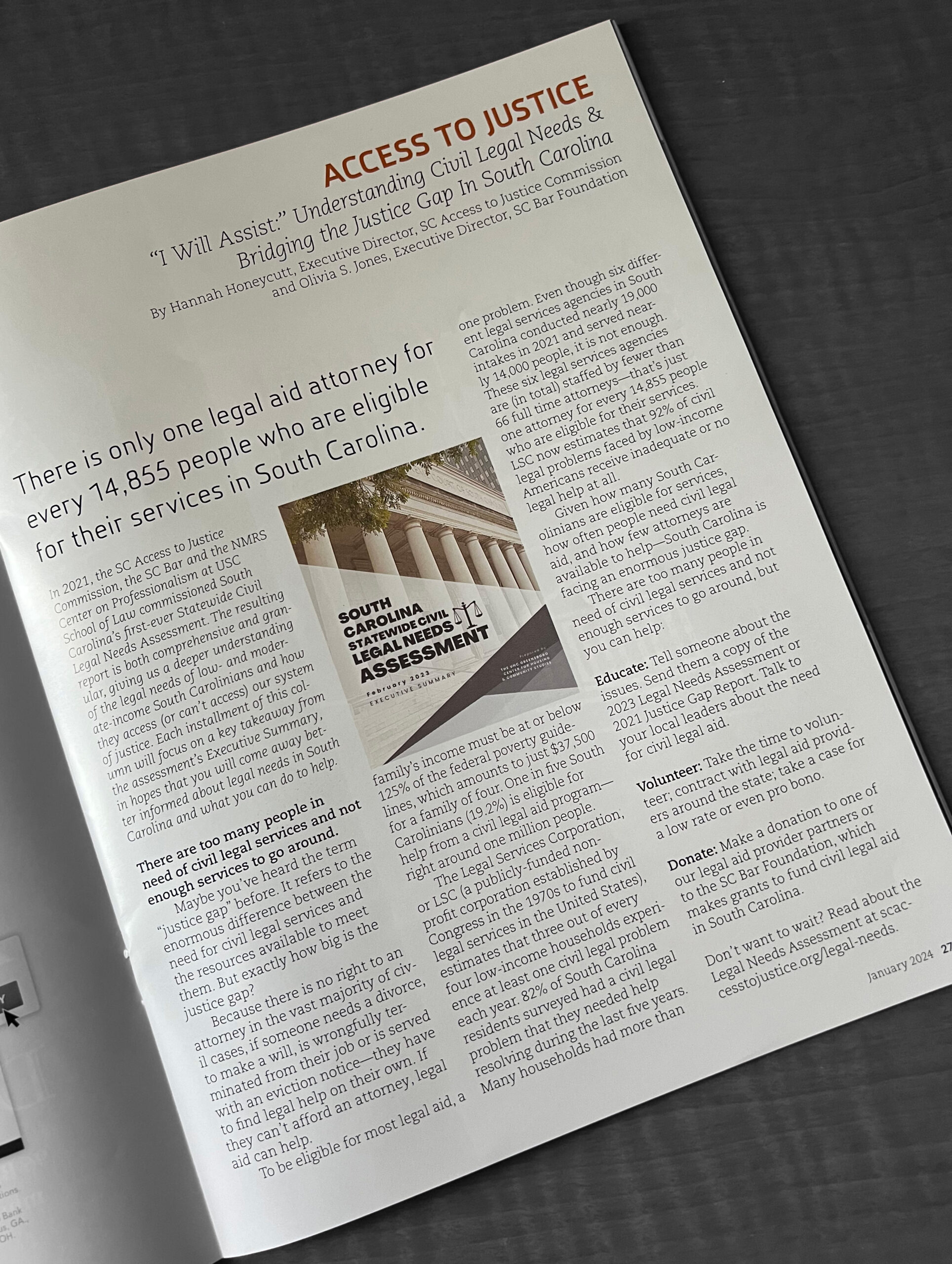
“We wondered, how are lawyers accessing this?” said Jones. “There’s been a lot of buzz since the study came out, but were the people in a position to address the problem actually seeing the study and engaging with its findings?”
Jones and Honeycutt decided to request space in SC Lawyer Magazine to raise the study’s visibility. The editors of the Bar publication were generous, which led to a series of columns by the two, highlighting key findings from the assessment. The first two installments appeared in the January and March editions.
These articles explore the first two of a dozen key takeaways identified by the study:
I. There are too many people in need of civil legal services and not enough services to go around.
II. It really makes a difference when you have a lawyer.
III. Housing and family law are the areas of greatest need for legal services, with debt collection, access to public benefits, immigration, and domestic violence also identified as areas of need.
IV. Lives in crisis present big challenges for legal services providers.
V. Concern about cost is the biggest reason that people do not seek legal help, but there are other reasons.
VI. Legal service agencies are looking for more ways to reach out to communities in need.
VII. South Carolina attorneys do not contribute enough pro bono services.
VIII. Reforms that would expand the roles of paralegals and other nonlawyers haven’t gained consensus among lawyers.
IX. Where you live affects access to legal services.
X. The caseload of South Carolina civil courts is heavy, and concentrated in counties with lower incomes, more unemployment, and higher proportions of black residents.
XI. By quantitative and qualitative measures, legal services resources are well spent.
XII. Support for expanded legal services is widespread in South Carolina.
The goal of the series is to encourage attorneys who haven’t yet fully engaged with the study’s findings to take a closer look.
“I’m hoping it will help us better direct our resources,” said Jones. Among other benefits, the study could guide the Foundation in determining how to allocate future grants more effectively.


